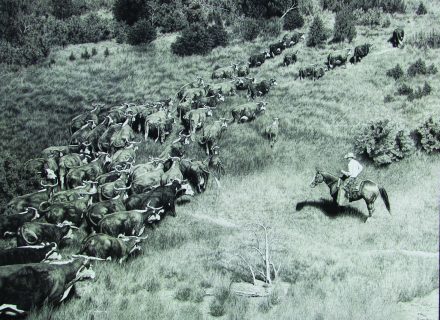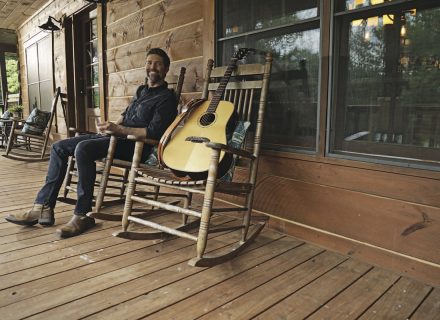When he made the leap from an unwavering real estate career to the uncharted waters of country songwriting at 39, it went something like this.
When Tom Douglas walked over to the piano in his Dallas home in 1992, he essentially walked away from a lucrative career as a real estate broker. And in the nearly 30 years since, we’ve all been better off for it.
“How did a guy selling real estate for years go to a grand piano on a beautiful Saturday morning with a black-and-white composition book and a good cup of coffee and finally decide to tell the truth, the whole truth, and nothing but the truth?” Douglas, now near 68, asked during a one-man show in 2019 at the Variety Playhouse in Atlanta.
This is that storyteller’s story.
Even with a family to support, Douglas was brave enough to pursue a career in songwriting long after lesser writers might have abandoned that dream.
“Mine is a story of failure,” Douglas shared. “It seems unfair that at 39 — jaded and incredibly cynical about my life — Almighty God looks down and says, ‘Your past is not your poison. It’s your gift,’” the Nashville Songwriters Hall of Famer opined.
Douglas defines his failure thusly: He’d originally given songwriting a shot when he was fresh out of grad school and moved to Nashville to play the coffee-shop circuit. But the dream took a backseat as Douglas’ responsibilities as a father and son became more complicated. In addition to a growing family (he and his wife raised three children), he needed to help care for his ailing father. He left the Nashville life behind and moved to Dallas to pursue a more stable career in real estate brokerage.
He continued his new path for 13 years after moving away from songwriting. But that day in ’92 at his piano, Douglas penned “Little Rock,” a tune that ultimately became his first chart-topper (sung by Collin Raye) and moved him back to Nashville and into the kinds of writing sessions that generate hit after hit.
And at the aforementioned Atlanta show, armed with nothing more than a grand piano, a harmonica, and a microphone, Douglas played the song that brought him back, along with a small fraction of the 2,500 songs he’s written since.
There was “Little Rock,” the most salient song from the first chapter of Douglas’ second career, then Lady Antebellum’s “I Run to You,” Chris Janson’s “Drunk Girl,” Tim McGraw’s “Grown Men Don’t Cry,” Celine Dion’s “Recovering,” and McGraw’s “Southern Voice,” a song Douglas explained was notable because “I was able to put ‘Apalachicola’ and ‘cicadas’ in the chorus and there’s not another song in the history of the world that did that.”
Then, of course, there was his Grammy-winning song for Miranda Lambert, “The House That Built Me,” which was recently named the Academy of Country Music’s first Song of the Decade.
But not unlike his own career, that song had to spend some time on simmer before anyone gave it a shot. He told the song’s story, and how it almost never even made it to Lambert.
Douglas’ co-writer, Allen Shamblin, came to him one morning in 2002 when they were performing in Sundance, Utah, and said, “I’ve been thinking about how houses hold memories. But what if there was a song not about the houses that we build, but the houses that build us?” The idea was so powerful, Douglas said, that he begged Shamblin not utter those words to another soul until they got back home.
“When we put our first draft together, it was 10 minutes long. We made a demo of it, turned it in and the publisher’s response was, ‘Cool.’ Which in Nashville is code for, ‘We will never, ever listen to that song again.’
“We were crushed, but undaunted.”
“Every so often we’d tweak it,” he said. “Then finally in 2009, we printed off voluminous lyrics and we got down to the essence. We needed a setup line for the hook. We needed, ‘If I can just come in I swear I’ll leave, won’t take nothing but a memory, from the house that built me.’”
Between 2010 and 2011, “The House That Built Me” won both the CMA and ACM Song of the Year awards, and Lambert took home a Grammy for her vocal performance. Last year, legendary singer Tanya Tucker put her own spin on the tune.
Douglas admits that these days, he still spends his life following the songs. And he has no regrets about leaving his past career behind, because that leap of faith he took 28 years ago has never sounded so good.
Photography: Images courtesy Claire Douglas, WIKI Images
From our January 2021 issue.


















